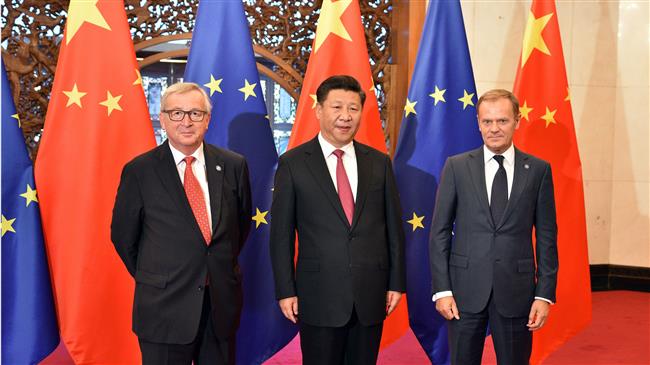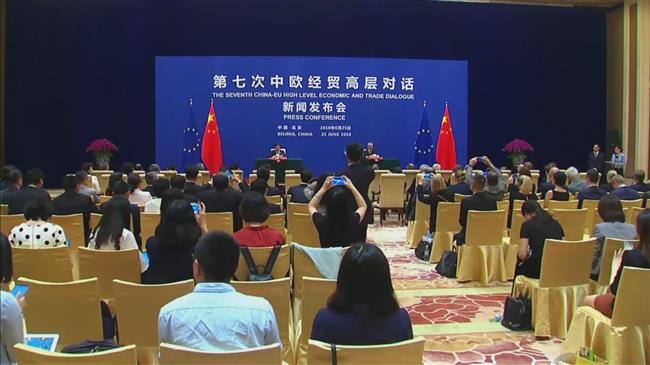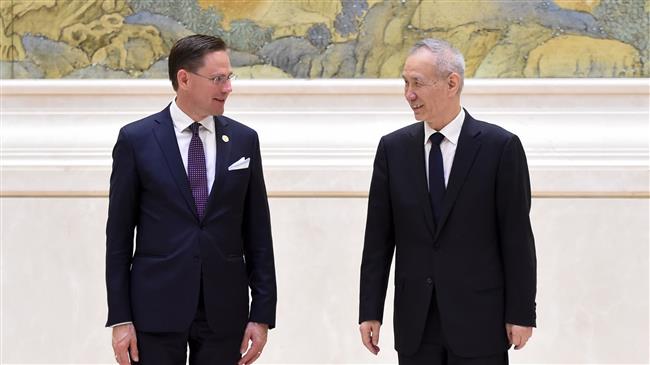EU resists China's pressure for joint anti-Trump stance in trade, diplomatic sources say
The European Union (EU) is basically opposed to a joint stance with China against trade policies of the administration of US President Donald Trump, diplomatic sources say.
Five EU officials and diplomats said on Tuesday that Brussels had rejected the idea of allying with Beijing against Washington as well as issuing a joint statement against Trump’s trade policies in the upcoming Sino-European summit in China on July 16-17.
China has been the main target of Trump’s policy of introducing tariffs on key imports, including metals. The EU has failed to gain an exemption from the tariffs, which could badly hit its steel and aluminum industry. Both China and the EU have imposed their own tariffs on American imports but China wants a tougher international action that could persuade Trump to withdraw the tariffs and revise the protectionist trade policies.
The sources said China had proposed to launch joint action with the EU against the United States at the World Trade Organization (WTO). However, they said the EU was against such a stance and instead wanted the upcoming summit in Beijing to produce a modest communiqué that could reiterate the commitment of the two trading powers to the multilateral trading system and promises to set up a working group on modernizing the WTO.
China has on several occasions hinted that the EU could have more access to the Chinese market if it steps up its support for Beijing’s efforts in countering the US trade policy. Chinese Vice Prime Minister Liu He has even indicated in private talks with the Europeans that Beijing would clarify in the upcoming summit what sectors it can specifically open to European investment in return for a joint trade policy against the US.
One of the diplomats said that the EU had clearly conveyed the message to the Chinese that a joint declaration against the US would not be possible in the upcoming summit.
“China wants the European Union to stand with Beijing against Washington, to take sides,” said the diplomat, adding, “We won't do it and we have told them that.”
The EU and China failed to issue a statement in the previous editions of the annual summit in 2016 and 2017. That was also due to disagreements on trade policy as well as a political dispute over China’s increasing presence in the South China Sea.
Israeli forces kill 7 more Palestinians in West Bank
Israel’s Netanyahu dismisses military affairs minister Gallant
Hezbollah attacks turn Israel’s Haifa into a ghost town
Iran’s FM meets Pakistani PM, discusses bilateral ties, Israeli atrocities
Iran ramps up gasoline output amid rising demand
UK foreign secretary under pressure over denial of genocide in Gaza
VIDEO | Press TV's news headlines
Hezbollah bombards explosives factory in occupied territories












 This makes it easy to access the Press TV website
This makes it easy to access the Press TV website